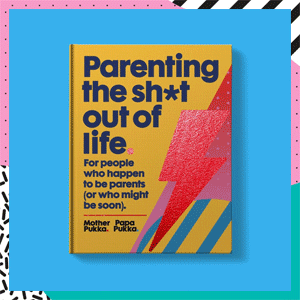

‘If we did it for you, we’d have to do it for everyone’.
‘How would I know you were doing any work?’
‘I need to know where you are’.
And on it goes.
Employers are legally required to consider one flexible working request a year from anyone who has worked for them for more than six months. But they’re not obliged to accept it. So I asked for the most common reasons why your requests for flexible working were turned down, then asked the experts how to handle those objections.
Here are some options, split into the quietly human (the As), the stat-tastic (Bs), and the outright bolshie (Cs). The Cs came from me.
If you’re at home, how will we know what you’re doing?
A: By seeing what I do. I can take the time to report in more, I can suggest measurable objectives. Whatever it takes to make this work.
B: Perhaps you don’t need to, and could focus on what I produce. One recent Stanford University study found that home-workers in China did 13.5% more work than those in the office – that’s almost a whole extra day’s work each week – and were happier in their jobs.
C: The same way you do when I’m shackled to my laminated-MDF-desk/factory-line/headset – but seeing how many spreadheets/widgets/sales I’ve produced, you binary-thinking progress-obstacle.
It’s too expensive
A: It shouldn’t mean more expense. I can suggest the hours in a way that works for both of us and it’ll mean I’m happier and more loyal as a result.
B: Actually, it can save money. It costs on average £5,000 to hire a new employee in the UK. When you add the time costs of getting the newbie up to speed it hits £30,000, according to Acas. But 76% of employers saw staff retention improve when they offered flexible working.
C: It’ll cost you more to replace me. Now shuffle your tuckus over here and sign it off.
If we did it for you, we’d have to do it for everyone
A: The business case is different each time and you’re under no obligation to give it to everyone. In my case, I want flexible working to succeed enough to make sure it does.
B: Great, you’ll become a much more attractive employer. Some 30% of the UK’s working population (8.7 million people) wants flexible working but doesn’t have it, yet only 6% of advertised jobs with a salary above £20,000 actually offer it.
C: Good. You’ll have a happier workforce and earn more money. Now fetch your diary.
It’s too difficult to manage
A: I believe in two-way flexibility, and will do all I can to manage this myself. So trust me and at least let’s have a go.
B: It can lead to management efficiencies, effectively keeping the business open for longer each day. There is lots of free advice and software online. And it’s a lot easier to manage a company with great staff retention. In the US, for example, 46% of companies that allow remote working say it has reduced attrition and 95% of employers say it has a high impact on employee retention.
C: Not for anyone who can be trusted to operate a stapler it isn’t. It isn’t hard, is what I’m saying.
We have a shift system
A: I’m asking to change my shift pattern, not end it. Why don’t we explore with the whole team what is possible? I’ve already spoken to some of them and think we can come up with a rota that works. Why don’t we have a trial period and review it.
B: Perhaps that is something that should be addressed. It is widely accepted that shift work reduces sleep quality, increases fatigue, anxiety, depression, neuroticism, adverse cardiovascular effects, gastrointestinal disorders and can be harmful t pregnant women.
C: Then shift it.
You’ll be less productive
A: I think the reverse is true. I want this to work, so will make sure that my productivity doesn’t suffer.
B: In a survey of 2,200 businesses in the UK, 81% of senior managers said flexible working improves productivity. A global survey of 20,000 business found that 72% of businesses reported increased productivity as a direct result of flexible working.
C: You know what makes me unproductive? Not seeing my kid. Why not see what I can do when my mind’s really on the job.
We have lots of impromptu meetings and need you here for those
A: We can agree core hours when I’d be here, like 10am to 4pm. I’m not going to just hole up at home, and perhaps we’d be more productive with more scheduled meetings, so everyone can manage their time.
B: Remote meetings are more productive, because everyone gets to the point. They are greener, as they involve less travel. Remote working is incredibly popular: a recent US survey found that 36% of staff would choose it over a pay rise. And if you roll this out across the firm, you can save on rent, too. Lambeth Council will save £4.5 million per year in property costs by having no more than 60% of its staff in at one time.
C: Can you spell ‘Skype’? Would you like me to explain what telephones are?
With thanks to Working Families and to Geraldine Gallacher at Executive Coaching.
Read more on flexible working.












